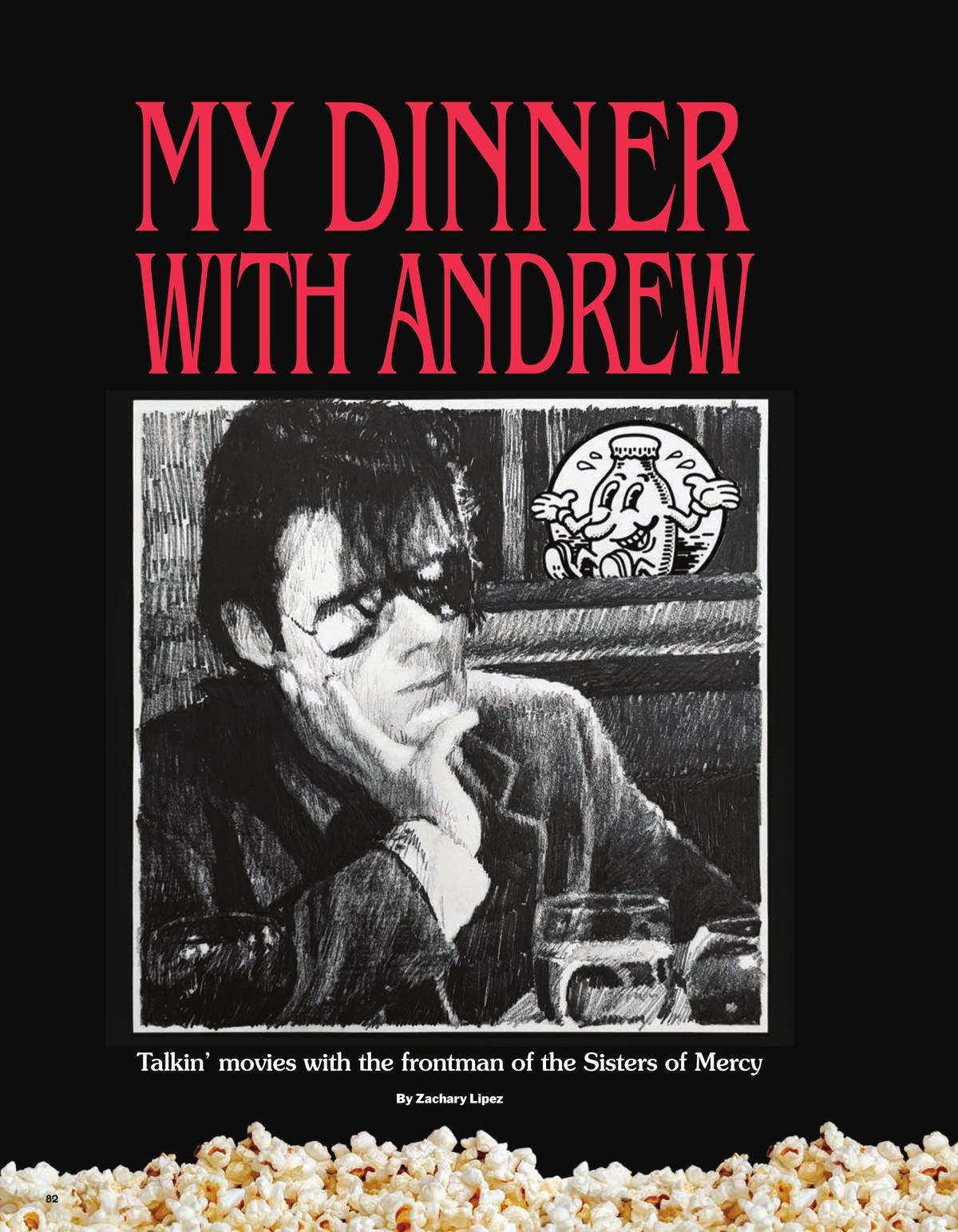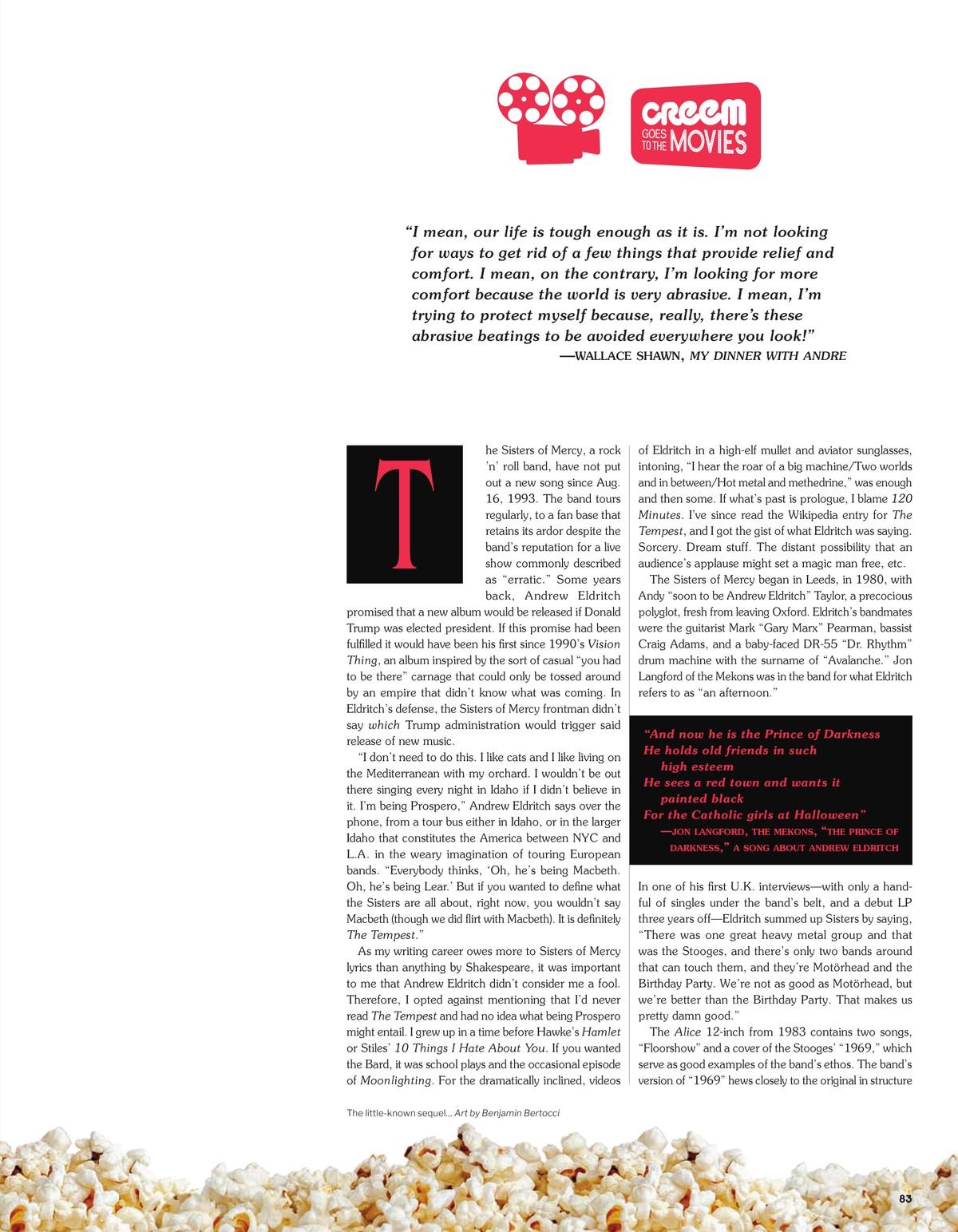MY DINNER WITH ANDREW
The Sisters of Mercy, a rock ’n’ roll band, have not put out a new song since Aug. 16, 1993. The band tours regularly, to a fan base that retains its ardor despite the band’s reputation for a live show commonly described as “erratic.” Some years back, Andrew Eldritch promised that a new album would be released if Donald Trump was elected president.
June 1, 2024


Loading...

